- Home
- Deborah Smith
The Crossroads Cafe Page 2
The Crossroads Cafe Read online
Page 2
“There goes another one,” I grunted. I brushed acorns and cell phone pieces out of my beard. “Tell the concierge I have some complaints about the wake-up calls in this hotel. If the maid service doesn’t improve I’ll have to remove myself to the comfort of my cabin when I drink. Can’t a man sleep all day in his truck without being disturbed?”
Crack. Banger, the goat, looked at me innocently as the last section of my phone disintegrated between his teeth. Fragments of the casing dribbled from his hairy white lips. I sighed. “I didn’t want that phone, anyway.”
If my brother would just stop sending me replacements, Banger might switch to something more nutritious, like hubcaps. John, up in Chicago, was determined to keep me from becoming a full-fledged Luddite. As long as I owned a cell phone, he thought there was a chance I might not end up writing crazed manifestos by lantern light in my cabin. Or shooting myself.
I was confident I wouldn’t do the former.
Stretching carefully, I gave every body part plenty of warning that we were about to move as a team. Sour stomach, greasy eyes, aching head, stiff back. The rest of me was only thirty-eight, but after a few hours in the truck, my back always qualified for the senior-citizen discount.
A rumble filled my ears. I looked up, squinting, as a big, late-model SUV rolled past, heading for the café’s last available parking space. Well-dressed children gaped and pointed at me from behind the SUV’s windows. Mom, what’s that scary-looking man doing in that scary-looking truck with that goat? A woman pivoted in the passenger seat and stared at me, then mouthed something to the kids. Don’t stare. It’s not polite to stare at wildly bearded mountain men who sleep with livestock. We don’t want to provoke him.
Whatever she really said, it made her brood sit back quickly and look away from me. I lifted a jaunty hand and waved. Beauty, after all, is in the eye of the beholder.
My personal cache of beauty could all be found here, at The Crossroads, a small cove high in the remote mountains of western North Carolina, where an old paved road known as the Asheville Trace and an even older, unpaved road called Ruby Creek Trail intersected in front of a cluster of buildings—a former farmhouse, an old log cabin, a string of whitewashed sheds, and a pair of gas pumps under a tin awning. Grocery, gas station, post office, thrift store, diner, and more. All of it known by one name that summed up the spirit, the sustenance, and the turning points of the lives that met there.
The Crossroads Café.
I was not necessarily an upstanding citizen of the Crossroads, but I had earned the respect of the people who mattered there. Or, at least, their tolerance.
I suddenly realized my long, brown beard was wet. And also my head, and my ponytail, and my face, and, when I lifted my beard, the front of my vintage New York Giants jersey. Soaked. Someone had doused the legacy of Hall-of-Famer Lawrence Taylor. Sacrilege.
That’s when I noticed the note tied to Banger’s collar. Written in black marker on a piece of torn cardboard with a Dixie Crystals logo still visible on one edge, it said:Thomas Mitternich,
You get your behind into my kitchen by 6:30. Cathryn is on TV then. Your sore eyes need the sight. Don’t make me come back with more water.
Love, Delta
Cathryn Deen. I’d never met her, but of course, I knew who she was. Everyone knew who she was. A bona fide, glamorous movie star. Not much of an actress, but what difference did that make these days? She was drop-dead gorgeous and adorably perky, her movies made fortunes, photos of her appeared every week on the covers of major magazines, she’d recently married some swaggering mogul, and now she was launching her own cosmetics line. Pygmies in the Amazon and Mongolian yak herders living in straw huts on the Russian tundra knew who she was. Even in the Crossroads, one of the most secluded mountain communities on the Eastern seaboard, people could tell you Cathyrn Deen’s favorite color (emerald green, like her eyes,) her favorite hobby (shopping in Paris,) and what kind of flowers (white roses flecked with 24-carat gold,) had decked the gazebo at her very expensive, very private Hawaiian wedding.
What people in the Crossroads couldn’t tell you was why she never visited the farm she’d inherited from her grandmother, north of the Cove, or why she never replied to the cheerful, friendly birthday and Christmas cards sent to her by her devoted, distant cousin, Delta, owner of the café and unofficial mayor of the Crossroads. To me and everyone else who lived in the secluded mountain valley, Delta was a queen. To Cathyrn Deen, Delta was obviously nobody.
I didn’t appreciate her attitude.
Wincing, I eased out of the truck and stood up. After a polite glance in all directions, I stepped between the truck and the oak, pulled up my water-dampened jersey, unzipped my jeans, and urinated on the oak’s protruding roots. “Take that,” I said to the squirrels and Cathyrn Deen.
Banger dropped my ruined phone and hopped down from the truck. He affectionately stomped one hard, cloven hoof on the toe of my running shoe and butted my left knee, hooking one horn through a hole in the denim and into the tender center of my kneecap. I saw stars for a minute.
When my head cleared, I scrubbed a hand over his floppy ears. “If there is a God,” I told the goat, “He appointed you to be my conscience.”
Carrying a fresh Giants jersey and clean briefs—when you regularly wake up in public, it’s a good idea to keep a change of clothes in your truck—I limped from under the tree. The fine, crusher-run gravel of the parking lot was a delicate material, as granite goes, yet it still managed to make ear-splitting sounds.
I tried to tiptoe, but it didn’t help.
A cathedral of sky and mountain opened over my head. I took a couple of reviving breaths. Evening light cloaked the Cove in soft blue shadows; the Ten Sisters Mountains, circling the Cove like the thick rim of a bread bowl, glowed gold and mint-green above filaments of silver mist. I made my way to an old church pew that served as a garden bench beside the paved road. Sinking gratefully onto the weathered chestnut wood, I exhaled. The Trace meandered past, its aged gray surface cracked and pockmarked, its fraying edges gently disappearing into low green clumps of thrift sprinkled with tiny lavender flowers.
The Asheville Trace hinted that modern horsepower could get you to Crossroads and back to civilization without packing a lunch. Coming from its namesake, Asheville, of course, the Trace wandered out of the Ten Sisters along their foothills, curled through the grassy Cove, then yawned past the café before its intersection with Ruby Creek Trail. Finally the Trace headed west to the county seat. During rush hour, we locals might see, oh, a car every ten minutes.
Which suited me just fine.
I leaned back on the old pew and inhaled the air and the view. Almost every spring evening the Ten Sisters filled with white fog, disappearing like islands in a soft, white sea. There was a reason pioneers named the Appalachians of western North Carolina the Smokies.
The air and the view could almost clear up a hangover. Almost.
“Thomas! Are you still out here goofing off?” Delta’s squeaky drawl stabbed my eardrums. Wincing, I pivoted toward it. She leaned over the rail of the café’s front veranda, a motherly, plump, angel of food under the whitewashed halo of a farmhouse-cum-restaurant porch, surrounded by a cluster of half-barrel flower pots and rump-sprung rocking chairs.
Like everything else at the Crossroads, Delta Whittlespoon seemed to have grown out of a perfect combination of need and want and comfort. Her chef’s apron hung askew over a sweaty, pink t-shirt emblazoned Southern Gals Say: The Lard Cooks In Mysterious Ways. An oven mitt protruded from the back pocket of her flour-dusted jeans. As I watched, a squirrel careened down the porch rails, landed right by her thick-soled hiking sandals, and grabbed a peanut that had fallen from one of the porch bird feeders. A purple finch zipped past her head to perch on the scuppernong vine twining up a post.
The woman drew wildlife and lost souls. She was a dark-haired, freckled, middle-aged, chubby, loving, tough, famous-cooking, business-managing matriarch of all she surveyed, i
ncluding me. She was determined to keep me alive.
“Are you coming inside, or do I have to take a hickory switch to your Yankee behind?” Delta called.
“I’m meditating,” I called. “Banger and I are working on the meaning of existence. So far, we think it involves butting things with your head.”
“Spare me your ill-tempered notions. Come on, you’re gonna miss Cathryn on TV! She’s having a press conference for her makeup company! They’re gonna interview her, live!”
Delta clearly believed a glimpse of her movie-star kin was always good for my jaded soul. And I always politely avoided telling her the only thing I wanted from Cathryn Deen was a hard-on and the deed to her grandmother’s abandoned farm.
“If I come in, will you give me a hot biscuit?”
“Git! In! Here!” She jabbed a finger at the double front doors, where a small sign said, The Crossroads Café. Good Food and Then Some. “I haven’t got time to sweet-talk you anymore! See all those SUV’s and minivans in the parking lot? I got a restaurant full of family reunioners from Asheville in here. I’m volunteering you to work as a busboy!” I gave her a thumbs-up. She went back inside.
“Don’t wait up for me, honey,” I told Banger, who was eating a cigar butt I’d dropped.
I walked slowly toward the café, already tired of being awake and sober. All right, I’d go inside and watch Cathryn Deen be beautiful.
I could use the fantasy.
Cathy Beverly Hills, California
The Face of Flawless, said the posters scattered around the Four Seasons’ penthouse suite, beneath a smoky, film-noir close-up of my face. I loved that picture of me. Classic. Yet innocent. Yet come-hitherish. A dark-haired Grace Kelly for the 21st Century. The princess next door who wears thong panties. Timeless beauty. Ageless perfection. From actress Cathryn Deen. Because every woman can be flawless.
Yes. Like me. Perfect.
The hype sometimes made me blush a little. Or pretend to, at least. A Southern beauty queen is trained from birth to be charmingly self-deprecating so people will give her the benefit of the doubt and not throttle her when she sucks up all the attention in a room. Fake humility? You bet. It came in handy during interviews and when signing autographs. We super-glam movie stars are just like everyone else, you know. We don’t think of ourselves as special or better than other people.
Right.
Oh, okay, I admit it: I was conceited, pampered, annoyingly coy, and way too fond of myself to be likable. But let’s be real here: I was the most beautiful woman in the world. People magazine said so. And Vanity Fair. And even Rolling Stone and Esquire, those cynical, sex-obsessed boys.
I had been praised and petted since the time I was old enough to gurgle adorably as my father wheeled me around Atlanta’s finest ballrooms and boardrooms in an emerald-green stroller custom-designed to match my eyes. Everyone loved me. The box-office reports proved it. I’d be paid twenty-five million dollars for my next film, a remake of Giant, co-starring me in the Elizabeth Taylor role, Heath Ledger in the James Dean part, and Hugh Jackman in the role Rock Hudson played.
I’m the new Liz Taylor, I thought, gazing at myself happily in a huge, lighted mirror while my personal stylists worked on me as if I were a life-sized Barbie doll. Take that, Julia and Angelina and Jennifer and Reese. Top my paycheck, if you can.
“We make fifteen-year-old girls look twenty-five and thirty-five-year-old women look twenty-five,” Judi, my hair girl, was saying to the others as she fluffed a long strand of my mocha-black mane. “So our pornographic culture will want to fuck us.”
“Our pornographic culture?” I said, smiling as I watched them primp me. “It’s just human nature for girls to flirt and boys to appreciate it.”
Randy, my makeup boy, chuckled wryly. “Not my nature, sweetie. But if a boy wants to flirt with me, that’s different.” His soft sable brush flicked across my forehead. His dark-skinned hand moved like an artist’s. A poof of Flawless Ivory Cream Foundation Powder floated before us. Randy waved his brush at Judi. “Personally, I’ve got nothing against looking pornographic. Or younger.”
Judi grunted at him. “You’re a guy. It’s not the same for you. Men are still considered desirable even after they turn into fat, wrinkled prunes with penises. When you’re a crusty old queen you’ll still get a lot of action.”
“I do hope so!”
“The porno culture?” said Luce, my wardrobe girl. “Let me tell you about the time I managed wardrobe for a triple-X producer. It was all leather corsets and high heels. And that was just for the livestock in the cast.” She hooted as she tugged a silky silver dress over my plunging silver bra. I slid my arms into lacy shoulder straps and Luce smoothed the bodice over my boobs, bending down to peer at them. Checking for nipplage, as we called it. “Perky nipple on the left, Boss.”
I nodded. Even my boobs were proud of themselves. “Get the Band-Aids. We don’t want the press to stare at my headlights when they’re supposed to be listening to my brilliant and witty thoughts about my new cosmetics empire.”
Randy clucked his tongue. “Boss, you could put on a burka and spray yourself with camel musk and men would still stare at your tits.”
“Camel musk? Maybe I should add that to my perfume line. Judi, I’m only thirty-two. What is that in camel years? How long before camels won’t whistle at me on the street? Does the porno culture include camels?”
“Oh, Boss, you know what I’m saying,” Judi went on. “Women are sex objects. After decades of feminism, that’s still all we are. If we’re not young and hot, we have no value.”
“I plan to be sexy even when I’m a hundred,” Luce growled. “As long as there’s KY and vodka, I can get laid.”
I laughed. Sex appeal was just another of life’s lucky gifts, and I’d been gifted more than almost everyone else on the planet. I couldn’t imagine being anything but beautiful. Conceited? Me? No way.
My people—I thought of my employees the way old Southerners talk of servants, as if I owned them—my people always liked me. Daddy and all my Southern aunts—those golf-playing, country-clubbing doyennes of the Atlanta social scene—had trained me to be a kind and generous New South plantation mistress. I turned to peer at Judi from under a lock of my hair, which she held out like a glossy chocolate rope as she teased the underside. “Judi, is this discussion going to segue into your ‘witches versus engineers theory?’”
“Isn’t that a new reality show on Fox?” Randy asked. Luce chortled.
Judi scowled. “Laugh if you want to. But there are jerks out there who say women are witches—I mean wiccans, not bitches—and men are engineers. That women represent emotion and sex—the dark arts—versus men representing logic and intellect—the progressive sciences. That women have no purpose other than breeding. And thus, that it’s women’s job to stay desirable until they hit menopause. After that, women are supposed to just fade away.”
I wagged a finger at her. “Not me. I refuse to fade. And I refuse to get old. I’m stopping my biological clock right now.” I snapped my fingers. “There. Done. I’m not aging anymore. Not ever going to get wrinkly, saggy, liver-spotted, or sun-damaged. I’ll never have neck jowls. I won’t even get pimples from PMS.”
Everyone smiled. They gathered around me, their faces around mine in the mirror, as if I were the center of a flower. Judi sighed. “Boss,” she said, “You will never be ugly. I can’t even picture it. You’ll never be a mere mortal like the rest of us.”
A wistful knot formed around my heart, a fluid squeeze of loneliness. Being special also meant being isolated. I never quite fit in. Men gawked at me nervously, and women were jealous of me. I had no close female friends, and no close male friends who weren’t gay. I was always ‘the face,’ first, not a person. Someday, despite all my bluster, my face would fade. And then I’d be no one. Don’t think about it.
I trained my attention on an elegant hotel platter of raw fruit and fat-free yogurt among the makeup kits, curling irons and other clutt
er. My no-frills diet reflected colorfully in the mirror. I was always hungry and always starving myself. I stared grimly at the food’s reflection. I hate eating like a rabbit trapped in a health spa. Suddenly the reflection vanished. Instead I saw my grandmother holding out a blue-willow china plate filled with her biscuits. Covered in gravy. Cream gravy. With flecks of pure pork sausage in it. Heaven.
I don’t mean I thought about my Granny Nettie and her biscuits. I mean I saw her, in the mirror. A vision. The irony of a life spent looking in mirrors that sometimes looked back. Like now. People who believe in psychic powers call it scrying. Granny Nettie claimed she could do it by gazing into any shiny surface. Mirrors, ponds, windows. She told me I could do it, too, when I was a child. I went home from that visit and reported that I’d seen my dead mother’s face in a bedroom window of Granny’s house. That the mother who’d died when I was a baby smiled as if welcoming me home. This was my room, she whispered in my thoughts. It can be your room now. Daddy told me only crazy people saw things in mirrors, and he never let me visit Granny Nettie again. I missed her and her odd little farm desperately.
I’d only seen a few images in mirrors since then - once, when a former boyfriend was killed in a speedboat accident, and a couple that portended the deaths of my aunts, Daddy’s sisters. My last vision, a couple of years earlier, had been terrifying. While checking my hair in a makeup booth backstage at the Oscars, I’d seen Daddy’s face.
It replaced mine for just a second. Peaceful, handsome, classic, sternly loving, silver-haired. The father who had been my biggest fan and toughest critic. The traditional Southern daddy I adored. I was so startled by his image in the mirror I flubbed one of my lines a few minutes later, as I read the Best Actress nominees on camera. Millions of people watching, worldwide, and I said Merle Step instead of Meryl Streep. “Do I look like a male country-western singer?” Meryl teased later.

 Legends
Legends Hold on Tight
Hold on Tight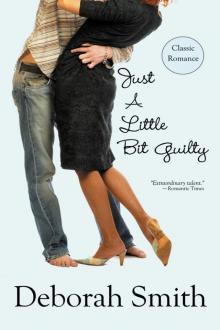 Just a Little Bit Guilty
Just a Little Bit Guilty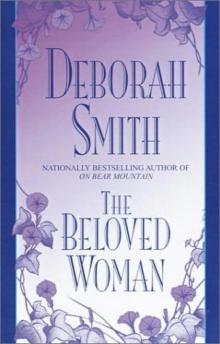 The Beloved Woman
The Beloved Woman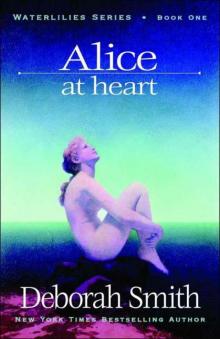 Alice At Heart
Alice At Heart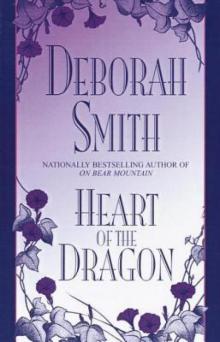 Heart of the Dragon
Heart of the Dragon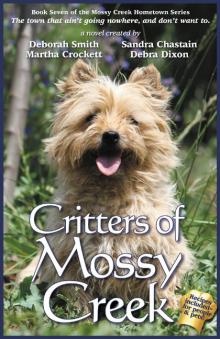 Critters of Mossy Creek
Critters of Mossy Creek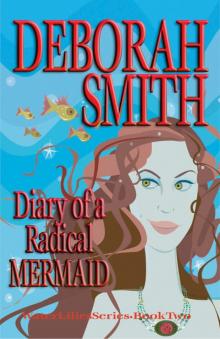 Diary of a Radical Mermaid
Diary of a Radical Mermaid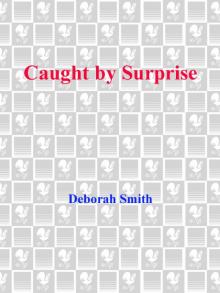 Caught by Surprise
Caught by Surprise Stranger in Camelot
Stranger in Camelot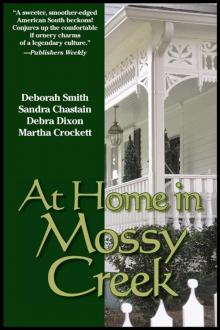 At Home in Mossy Creek
At Home in Mossy Creek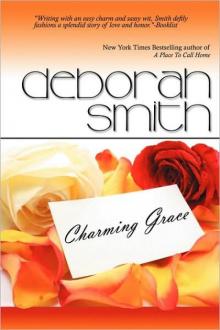 Charming Grace
Charming Grace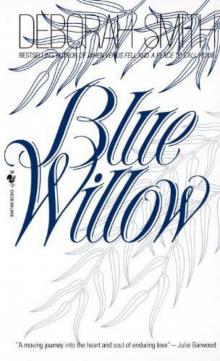 Blue Willow
Blue Willow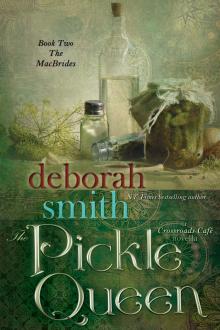 The Pickle Queen: A Crossroads Café Novella
The Pickle Queen: A Crossroads Café Novella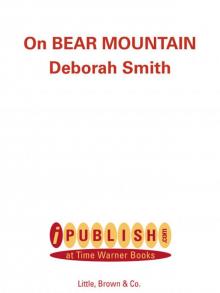 On Bear Mountain
On Bear Mountain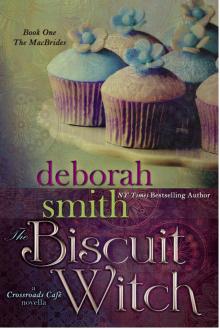 The Biscuit Witch
The Biscuit Witch Sara's Surprise
Sara's Surprise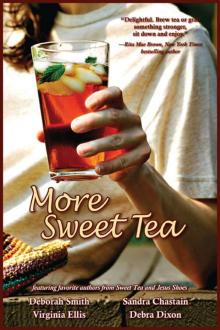 More Sweet Tea
More Sweet Tea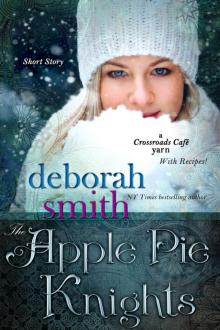 The Apple Pie Knights
The Apple Pie Knights The Silver Fox and the Red-Hot Dove
The Silver Fox and the Red-Hot Dove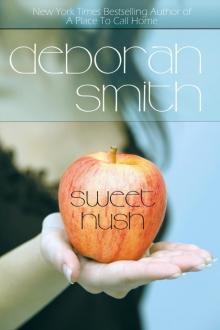 Sweet Hush
Sweet Hush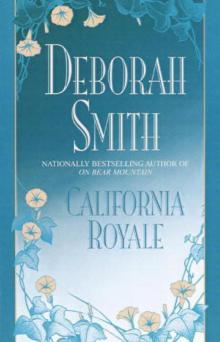 California Royale
California Royale Hot Touch
Hot Touch Miracle
Miracle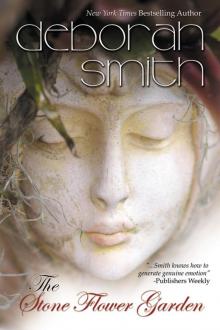 The Stone Flower Garden
The Stone Flower Garden A Place to Call Home
A Place to Call Home Silk and Stone
Silk and Stone Honey and Smoke
Honey and Smoke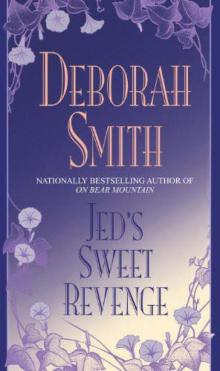 Jed's Sweet Revenge
Jed's Sweet Revenge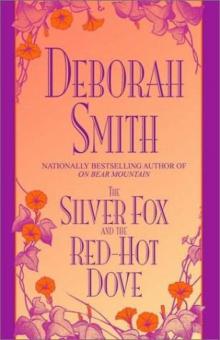 Silver Fox and Red Hot Dove
Silver Fox and Red Hot Dove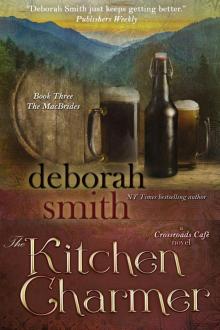 The Kitchen Charmer
The Kitchen Charmer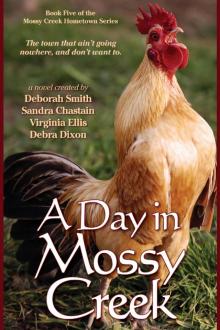 A Day in Mossy Creek
A Day in Mossy Creek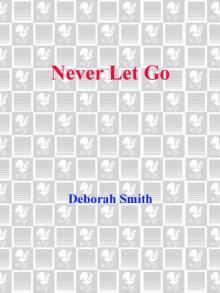 Never Let Go
Never Let Go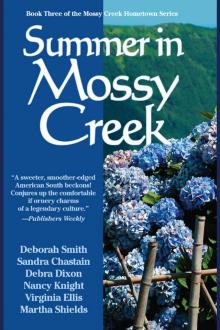 Summer in Mossy Creek
Summer in Mossy Creek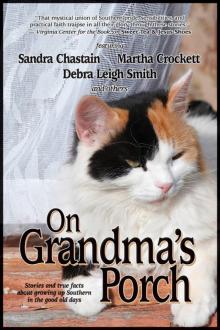 On Grandma's Porch
On Grandma's Porch The Crossroads Cafe
The Crossroads Cafe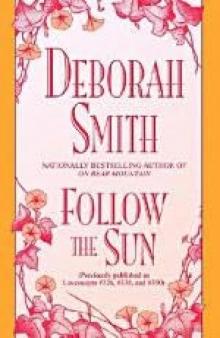 Follow the Sun
Follow the Sun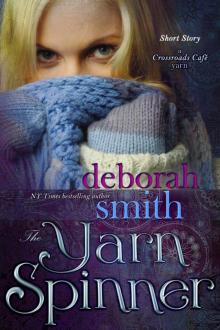 The Yarn Spinner
The Yarn Spinner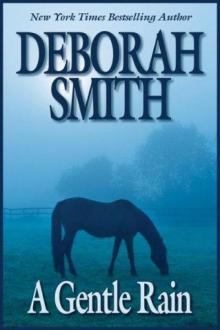 A Gentle Rain
A Gentle Rain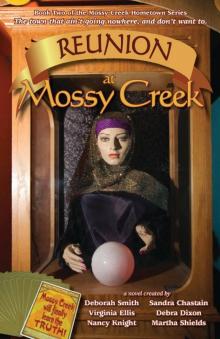 Reunion at Mossy Creek
Reunion at Mossy Creek